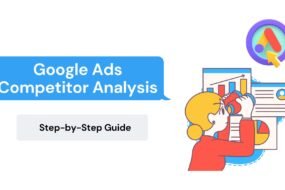
In today’s fast-paced and ever-evolving business landscape, staying relevant and connecting with the right audience is more critical than ever, especially when Gen Z Marketing vs Millennials. With the rise of the internet, the way people consume content and make purchasing decisions has drastically changed, shaping the marketing strategies required to engage these distinct generations.
This shift has given birth to a new generation of consumers – Generation Z, also known as “Gen Z.” Gen Z, born between the mid-1990s and early 2010s, has grown up in a world saturated with technology and social media.
They have a unique perspective on marketing and advertising, and businesses that need to adapt to their preferences risk losing a significant portion of their target audience. On the other hand, Millennials, born between the early 1980s and late 1990s, represent another essential demographic that businesses should consider.
In this blog, we will explore Gen Z and Millennial marketing in detail, highlighting the differences between these two generations and providing insights into how businesses can effectively target each group.
By understanding their distinct preferences and behaviors, marketers can tailor their strategies to resonate with both Gen Z marketing and Millennials, capturing their attention and building long-lasting brand connections.
What Is Gen Z Marketing?
Gen Z marketing is a digital strategy targeting individuals born between 1997 and 2012.
This demographic is known for its unique characteristics, including its high level of digital proficiency and desire for authenticity and social responsibility.
Moreover, According to Deloitte, Gen Zers are the audience that wants to experience new adventures, not just buy products, and is more likely than previous generations to support brands that align with their values.
Why Brands Are Marketing To Gen Z

Source: searchenginejournal.com
Gen Z, the generation is a crucial target audience for businesses to reach. Here are some of the reasons why brands are doing Gen Z marketing:
- They’re Digital Natives
Generation Z has grown up with technology and the internet integral to their lives. It means they are more at ease with digital platforms and have a higher level of digital literacy than previous generations.
So, their lives are lived mainly digitally, which means they are online all day, Making it easy for marketers to track their consumer behavior and market their products and services.
- They Are In Bigger Proportion
Gen Z, the post-millennial generation, is a significant demographic group with a significant economic impact. They are the world’s largest generation, accounting for approximately 26% of the global population.
And 40% of the consumer population in the United States. It means they account for a sizable portion of the consumer market, creating a significant opportunity for brands to target for business growth.
How To Market To Gen Z
Marketing to Gen Z requires a different approach than that of previous generations, as this group has grown up in a digital age and has different values, interests, and communication preferences. Here are some tips on how to effectively market to Gen Z:
Determine Which Toolbox They Use The Most
Conduct research to determine which platforms Gen Z prefers. Examine usage and engagement patterns to decide which platforms are most popular among Gen Z.
Brands that understand what Gen Z expects from them on various social media platforms will have a competitive advantage over those that do not. Let’s look at the top three social media platforms for Generation Z.
Snapchat is a social media platform that operates on the premise that social media content and messaging do not need to be permanent. Content and messages on the “Snaps” app are set to self-destruct after viewing.
An estimated 71% of Gen Z use Snapchat daily, with 51% using it at least 11 times daily. It elevates Snapchat to be the leading social media platform for this generation.
TikTok is one of the most popular social media platforms right now. They account for a whopping 60% of its user base. TikTok is all about unpolished content that Gen Z enjoys. When marketing to Gen Z on TikTok, keep fun, creativity, and authenticity in mind.
Pranks, skits, and tips perform exceptionally well. As an illustration, while developing content, Keep an eye on the day’s or season’s trends and use hashtags and dance challenges for marketing your brand.
Generation Z, the cohort that includes marketing to millennials and Gen Z, uses Instagram uniquely and compellingly. They are drawn to aspirational posts, much like other generations, but what sets them apart is their strong preference for spending time in their DMs and closely following Stories from their close friends.
These Stories hold a more personal touch than the algorithmic feeds they browse. Marketers must adopt strategies to reach and retain Generation Z’s attention on Instagram effectively.
Instagram has emerged as the platform of choice for Generation Z, with members checking it approximately 11 times daily. Its user-friendly interface facilitates seamless interaction and shopping experiences, making it an all-in-one app for browsing and purchasing.
Brands looking to capture the interest of Generation Z must invest in Instagram Stories, as they serve as an excellent hook for this audience. However, authenticity is critical; content should be sufficiently polished and perfect but portray a genuine, spontaneous, and personal vibe.
Today, Generation Z is the focal point for marketers, and Instagram remains one of their preferred social platforms. It has become a go-to source for the latest news among young people. To engage effectively with this audience, brands embrace innovative Instagram marketing techniques that enable them to stand out amidst the endless content feed.
By understanding Generation Z’s unique behaviors and preferences on Instagram, marketers can craft content that resonates naturally and fosters a strong connection with this influential demographic.
Create Attention-grabbing Materials
Gen Z, the visually-driven generation, prefers engaging and visually appealing content. When marketing to Gen Z, it is essential to understand that they have a concise attention span, which means that brands need to create Gen Z marketing content that captures their attention quickly or risk losing them forever.
To effectively reach Gen Z, brands should focus on creating authentic, personalized, and visually appealing content that resonates with Gen Z’s values and interests. They are the highest consumers of digital content and buy from inclusive brands with a solid online presence.
This younger generation is highly connected and relies on the internet for everything they do, making it crucial for brands to adapt their marketing strategies to cater to their preferences. Utilizing bite-sized content in both text and image form is essential when targeting Gen Z.
Lengthy introductions should be skipped to get straight to the point of the Gen Z marketing message, ensuring that it is delivered in a way that speaks directly to their desires and needs.
Leverage The Appropriate Tags
Conduct research to determine which hashtags are popular among Gen Z marketing. Tags can be used for various purposes, including grouping all related posts under one hashtag.
Encourage your audience to take part in the creation of specific content. Raising and disseminating knowledge about a cause and creating a brand hashtag broadens your reach while carving out a niche for your content and inviting your audience to participate.
Aside from creating your own, you can join existing hashtags and share relevant content to demonstrate that you are aware of cultural events and stand up for issues your organization supports. It indicates that your brand is concerned with societal issues and doing the right thing.
Collaborate With Nano And Micro-influencers
Next, engage in influencer marketing. Working with nano and micro-influencers can effectively reach Generation Z.Nano (1K-10K followers) and micro (10K-100K followers) influencers typically interact more with their audience.
They are also more authentic and relatable, which is essential to Gen Z. Nano and micro-influencers have the highest Instagram engagement rates, ranging from 10% to 12%. This engagement fosters trust and a personal relationship with followers that many prominent influencers need to gain.
By incorporating Gen Z marketing strategies like influencer collaborations, brands can tap into the power of these influencers and effectively connect with the Gen Z audience.
Modify Your Brand Demeanour
Gen Z is a demographic that values humor and authenticity, and incorporating humor into your Gen Z marketing strategy can help your brand connect with this audience. Brands can leverage the power of Gen Z marketing by infusing their campaigns with humor, utilizing memes, pop culture references, and witty one-liners to create a relatable and engaging experience.
What matters most is that brands develop a distinct voice that resonates with this generation, showcasing the human side of their social presence through authentic interactions that don’t sound entirely suit-and-tie. By embracing the dark, surreal, and absurdist humor that characterizes Gen Z, brands can tap into their diverse perspectives and experiences.
Recent survey findings demonstrate that humor plays a significant role in consumer preferences, with nine in 10 consumers, mainly Gen Z and millennials, preferring funny brands, who over-index at 94%. Incorporating humor helps improve email marketing campaign open rates and drives sales, making it a valuable tool for reaching and connecting with this influential Gen Z audience.
React Rapidly To Devotees
Timely responses are critical components of any brand’s social strategy. 47% of consumers consider a best-in-class brand to provide excellent customer service.
A brand’s responsiveness not only fosters customer loyalty; it also supports financial objectives. In today’s digital age, where Gen Z marketing is crucial in reaching younger audiences, brands must leverage social media tools to maximize their online presence.
By incorporating strategies that resonate with Gen Z, such as incorporating the keyword “Gen Z marketing” naturally into their content, brands can ensure they capture this influential demographic’s attention and encourage meaningful customer interaction online.
Offer Exclusive Deals
Gen Z is known for its frugal habits and love of bargains. Offering exclusive discounts is a powerful Gen Z marketing strategy for building brand loyalty in the growing Gen Z market because most Gen Z will earn a little later.
With inflation on the rise, they will be looking for brand discounts. Statistics show that Discounts were the most common reason for Gen Z to engage with a new brand on social media in 2022. Students believe they would be more likely to shop with a brand if they could access a gated offer.
Conclusion
I hope you understand why Gen Z marketing could benefit brands and how to implement it to reach and engage with this generation effectively.
Whether you are a small brand or a large corporation, these tips can help you capture Gen Z’s attention and convert them into loyal customers.
If you have any doubts about Gen Z marketing or want to learn more about it, feel free to get in touch. We will be happy to help you.
Thanks for reading








No Comments